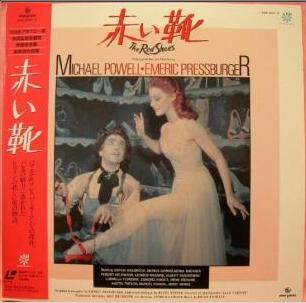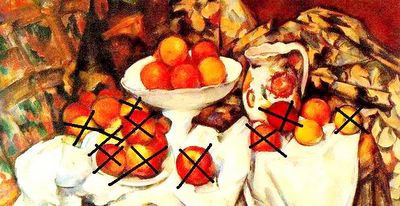"2046' " + "In the Mood For Love" = Lost True Love Handbook Faye Wong, Zhang Ziyi, Maggie Cheung, Gong Li...The most romantic faces are now in Asia..
Faye Wong, Zhang Ziyi, Maggie Cheung, Gong Li...The most romantic faces are now in Asia.. 
Mr Kar Wai, the Hong Kong film director that plays in the same league of people like Fellini, or Wells or Truffaut, declared, some time ago, that
ideally one should see "2046" first , and only afterwards "In the Mood for Love" in order to understand the full package in the correct order.
Thanks to plasm

a-screen and DVD-reading technologies that's what I've done this weekend. Time and time again, I cannot stress too many times that
there's a "critical mass" regarding information about any given subject, which by attaining it, like speeding towards the sound barrier, gives you a totally different grasp of that subject. It's like total immersion techniques in language learning versus pitiful slow longterm efforts.
So "2046" it was, and "In the Mood for Love" (plus, afterwards, all the bonus material of the DVD special editions).
Are we still entitled to have secrets? 
WKW explains his "2046" project: "There is a need in all of us to have to hide or store certain memories, thoughts, impulses, hopes and dreams. These are part of our lives that we can't resolve or best not cast upon but at the same time we are afraid to jettison them. For some, this is a physical place; for others, it is a mental space, and for a few it is neither". On a recent interview, Kar-Wai says all his secrets are in his films, he does not need, as his characters do, to find a hole on a tree, a hole on a stone wall in Ankhor Vat, or two female fingers shaping a circle, to whisper the secret they want to share.
Personal secrets are the spice and blood of one's journals. Can one have both a journal (with secrets) and a partner? Or a partner (say, a wife) should in principle be allowed to read one's journal? Was Tolstoy right in showing her fiancée his diaries just before marriage? (She was horrified and couldn't believe the sexual dissaray of his husband-to-be). Was John Lennon right in asking Yoko Ono for a list of all her previous lovers? Is it acceptable behaviour for individuals engaged in serious relationships to maintain a territory of un-shared thoughts or writings? Their "secrets"? On the other hand, do we really have an urge to spill the beans sooner or later? Somehow, after the time spent with WKM's films, I think that Art indeed is spilling one's secret beans..
True Love (TL) in space/time...
"Time waits for no one, even for me" . The male leading character in both films, , played by Tony Leung, is a family-man in "In the Mood for Love" ( Chow Mo-Wan) who arrives "too soon" at his True Love discovery. Both her (Maggie Cheung playing Su Lizhen) and himself are not available - both married although both betrayed - and cannot live through their discovery. In "2046", Bai Ling  (played by Zhang Ziyi) thinks she has found TL, but it's too late for Chow, now a womaniser who does not want to commit because he assumes his true TL is irretriveably lost somewhere in the past. As the saturated colours, the moodish music and the elegant desperate faces tell us, TL is never to be experienced in the present, being either a dream in the future or a loss in the past. Either too soon or too late. In that sense, a WKW movie is the strict opposite of happy-ending Holywood films, where TL is always rewarded in the final photograms. It's painful of course to be a grown-up..
(played by Zhang Ziyi) thinks she has found TL, but it's too late for Chow, now a womaniser who does not want to commit because he assumes his true TL is irretriveably lost somewhere in the past. As the saturated colours, the moodish music and the elegant desperate faces tell us, TL is never to be experienced in the present, being either a dream in the future or a loss in the past. Either too soon or too late. In that sense, a WKW movie is the strict opposite of happy-ending Holywood films, where TL is always rewarded in the final photograms. It's painful of course to be a grown-up..
To change. To move onAbout the script outiline of "2046 " the following atempt to describe it is as good as any other: "He was a writer. He thought he wrote about the future but it really was the past. In his novel, a mysterious train left for 2046 every once in a while. Everyone who went there had the same intention.....to recapture their lost memories. It was said that in 2046, nothing ever changed. Nobody knew for sure if it was true, because nobody who went there had ever come back- except for one. He was there. He chose to leave. He wanted to change."
Do we need to revisit the past time and time again, do we need to whisper/write/film direct our secrets, or would it be better to do something else? To live things as they happen, to avoid secrecy, to display openly your thoughts and feelings.. To have your own blog, perhaps? :)
Several years in the making and highly anticipated, _2046_ (2004) should pacify director Wong Kar Wai's fans, at least, for its end-of-an-era feel and look. At its core, this is a decidedly (or deceptively) simple movie, in spite of its fractured and non-linear narrative. It tells the tale of an emotionally wrecked man, Chow Mo Wan (played by Tony Leung), a reprised character from Wong's critically acclaimed earlier oeuver, _In the Mood for Love (2000)_, and the many beautiful women he keeps and fails to keep, in a time-space continuance that is laden with sepia-tinted memories: a monologue, if you will, of Chow's torrid love affairs, love spats, and the ensuing heartbreaks resulting, no doubt, from the pangs of a failed liaison Chow is trying to escape. It'd appear that the failed relation with Su Lizhen (Maggie Cheung) in _In the Mood for Love_, who has a "special appearance" in this film, has changed Chow irrevocably, which is key to understanding Chow's troubled soul. But it is not a sequel necessarily, per se, to _In the Mood for Love_. This film can still be watched on its own, though it'd certainly help if you could link moments in _2046_ to the director's earlier works, for it's laden with jumbled continuity (take the character of Lulu, for example, first seen in _Days of Being Wild (1991)_), hidden meanings (read: Neo-Godardian) and other fun stuff, sorta an insider's joke, if you dig such esoteric things. But I digress. And it's been said that this is a culmination of all the previous filmic experience of director Wong (bordering on narcissism); hence its "end-of-an-era" feel and look is duly appreciated and a point well taken.In _2046_, Chow's isn't an easily likable character owing to the frailty and the vagaries of his own personal emotions and peccadilloes, but that makes him only human and real, and his character, believable. Take the following exchange:
Su Lizhen (Gong Li) to Chow Mo Wan (Tony Leung): Do you know my past?Professional gambler Su (she who is of the same name as that of Maggie's character in _In the Mood for Love_) asked Chow, dissonantly, questioning the latter essentially whether there is a future for the both of them, if he cannot forget his past.
And it's for the same reason, or so we're led to believe, that Bai Ling (Zhang Ziyi) is left devastated, as Chow cannot treat her any differently from the scores of other women he's seeing; hence eliciting the following memorable line from Bai which I'm sure speaks to most of us one way or another:
Bai Ling (Zhang Ziyi) to Chow Mo Wan (Tony Leung): You may not like me. But I'll like you all the same.What fools we are made by love. :)
Contrasting Chow as a man who dwells in the past and in need of closure to move on, Tak (Kimura Takuya) isn't ambiguous when it comes to matters of the heart.
Tak (Kimura Takuya) to Wang Jingwen (Faye Wong): I do not know what your answer may be. (I dread to know.) But I need to know.
Here is a man who is not afraid to love and says his love. And he needs to know if his love is unrequited. And in seeking happiness, the message seems to be that there is no other way. Now why does this remind me of all the sorry tales with which we are all-too-familiar with men-who-cannot-commit-or-decide? :)
And so the film is thusly replete with impressions of repeated variations of the same theme: the pointlessness of returning to the past. Which is why we have the following line:
Bai Ling (Zhang Ziyi) to Chow Mo Wan (Tony Leung): Why can't it be like before? (The same reason why nobody returns on the 2046 train, in Chow's sci-fi novel of the same name. Seen in this light, it is also a double-entendre for director Wong: Why can't this film be like the one before in the form of _In the Mood for Love_? Where does he go from here?)
Those familiar with Wong's earlier works will notice his signatures throughout: quick cutting, slow motion, fast motion, freeze frames, black and white, tilt shots, color filters, neon-sign lighting, aided ably by three able cinematographers. Production value of _2046_ is expectedly top-notch. Music by Shigeru Umebayashi is haunting and sets the right mood. Zhang Suping (William Chang Suk Ping) does a wonderful job in creating an enrapturing atmosphere set in the late '60s.How great it is, in an otherwise desolate world of unease, vulnerability, hopelessness, and pathos, we have directors such as Wong to feast our senses. Highly recommended.
































